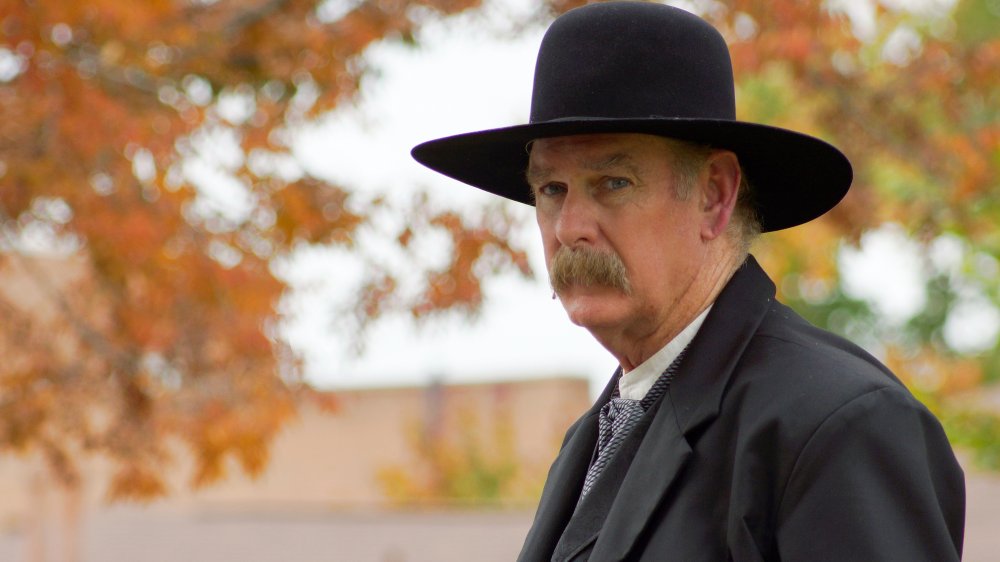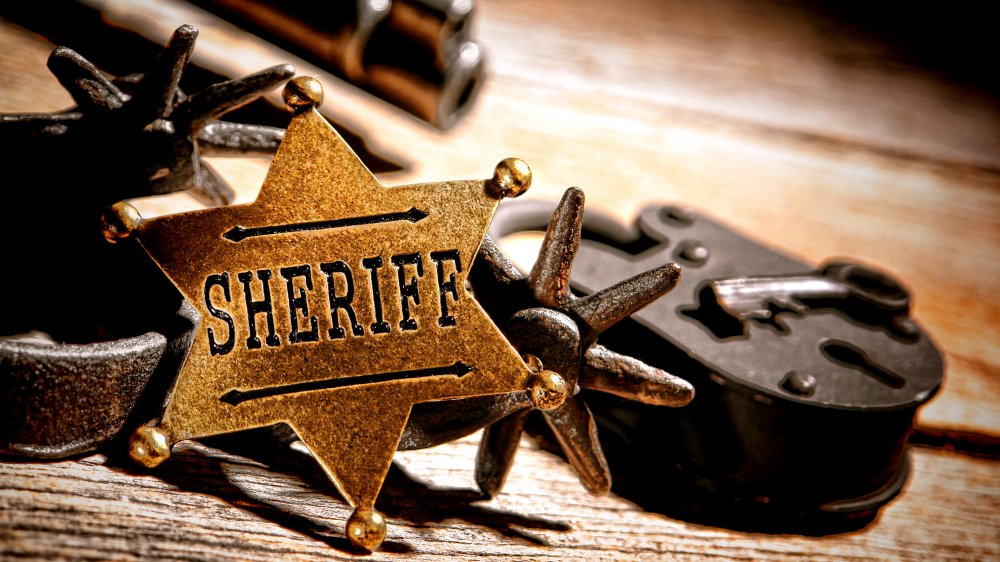What's The Difference Between A Marshal And A Sheriff?
Law enforcement wasn't necessarily a great job on the Wild Frontier — depending on the town, there was the danger of a drunken cowboy getting too liberal with his handgun, full of remorse the next day when the arresting officer was full of his lead. Just ask Fred White, city marshal of Tombstone, Arizona Territory, shot and killed by Curly Bill Brocius in what may or may not have been an accident in the midst of an arrest. The jobs didn't pay particularly well, either, and could include less glamorous tasks like shooting stray dogs (some towns paid deputies a bounty) or repairing wooden sidewalks. There were basically two kinds of marshals in the Old West: a town or city marshal, like unfortunate Fred White, and federal deputy marshals, like Wyatt Earp's older brother, Virgil. When you think of town marshals, think of your town or city's police force today, charged with keeping the peace within the city limits. Deputy federal marshals, on the other hand, investigated federal crimes within a region, but also backed up local law enforcement when needed. It wasn't unusual for a city marshal or a county sheriff to also hold the position of deputy federal marshal, as Virgil did in Tombstone, according to Marshall Trimble, Arizona's official state historian.
City, county, and federal
Sheriffs, on the other hand, had some law enforcement responsibilities, but were often in the business of collecting taxes county-wide, of which they got a percentage. In Tombstone, for instance, a sheriff's $2,500 annual salary might bump up as high as $30,000 a year, according to Trimble. Sheriffs and deputies did chase evildoers, of course, and sometimes cooperated with town or federal authorities in the chase. Sheriff Johnny Behan in Tombstone was an exception; he famously was at odds with the Earps and their law enforcement allies in Tombstone.
An important distinction is that marshals tended to be hired, and sheriffs were elected, usually the highest elected office in a county in those days. In turn, sheriffs and marshals would hire their deputies, or deputize on the spot in times of need, as Virgil did for his brothers Morgan and Wyatt (though possibly not Doc Holliday) just prior to the O.K. Corral fracas. Wyatt served as both a federal deputy marshal and as a sheriff's deputy during his Tombstone days, and as a deputy marshal in Wichita and Dodge City, Kansas, earlier in his life. Wyatt was a rarity: a peace officer who died of old age and wasn't even wounded in the course of his duties.

